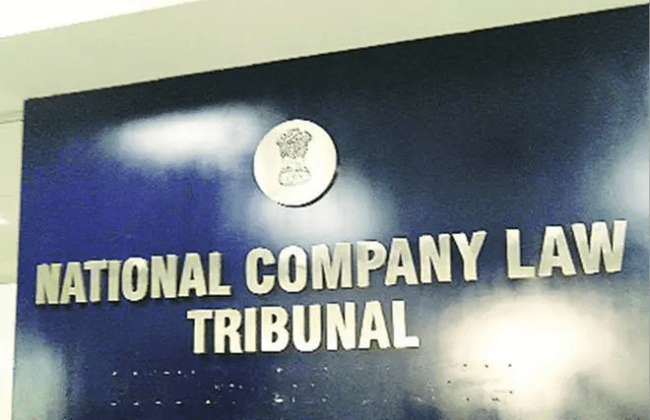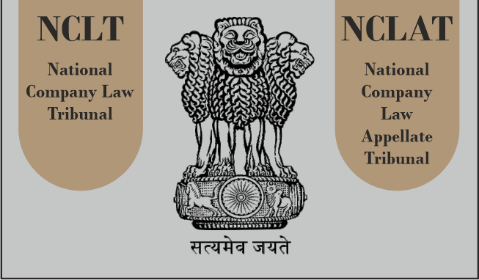What is the full form of NCLTNCLT: National Company Law TribunalNCLT stands for National Company Law Tribunal. The Central Government established the National Company Law Tribunal (NCLT) on June 1, 2016, following Section 408 of the Companies Act of 2013. One major bench in New Delhi and ten additional benches in major cities make up the Ministry of Corporate Affairs' first eleven benches. The President Chief Justice (Retd.) Ramalingam Sudhakar oversees these Benches, consisting of nine technical members and sixteen Judicial Members dispersed over several locations. As a result, new members and additional Benches have been formed in major cities. 
The strengthened role of company secretaries in maintaining corporate governance in a business was one of several changes made to the corporate governance framework by the Companies Act, 2013. In acknowledgement of the crucial role they performed, company secretaries were for the first time included in the list of "key management employees," as specified by Section 2 of the Act 2013, alongside the chief executive officer, managing director, manager, and whole-time director. The Act's Section 2 further details the various obligations a Company Secretary has in addition to those mentioned earlier. These changes demonstrate the increasingly significant function a corporate secretary currently plays inside the organization, especially in maintaining compliance with methods and principles of corporate governance. The scope of the role and power of a company secretary under the Act was considered by the National Company Law Tribunal, Chennai Bench (NCLT). The National Company Law Tribunal, Chennai Bench (NCLT), examined the parameters of the function and authority of a Company Secretary under the Act. A Firm Secretary's duty, responsibilities, and powers under the Act may not have been covered fully by the NCLT. Nevertheless, it has clarified and highlighted the critical part a company secretary plays in upholding corporate governance. Scope of NCLTThe meanings of a few essential phrases within the Act, which underline the significance of a Company Secretary's position under the Act, were taken into consideration by the NCLT while evaluating the scope of responsibility and the power placed by the Act on a Company Secretary. The NCLT, among other things, evaluated how the Act defines "essential managerial staff" and "officer who is in default" and emphasized that the days of a company secretary serving in the capacity of a glorified clerk are long gone. 
In a drama about company secretaries, the watchdog of preserving corporate governance standards and the common interest of all stakeholders, including the corporation, is described as a company secretary. Jurisdiction of NCLTThe NCLT further noted that Section 205 of the Act's legal provisions had given the Company Secretary's participation in a company's compliance and strong corporate governance practices a statutory dimension. According to the NCLT, a Company Secretary is even authorized and required to represent the company before various regulators and other authorities under the Act following Section 205 of the Act read with Rule 10 of the Companies (Appointment and Remuneration of Managerial Personnel) Rules, 2014. Concerning the performance of different Act-required responsibilities, additionally, the Corporation Secretary is accountable for any noncompliance by the company with compliance laws and may even be subject to penalties. However, the NCLT made it clear that a company secretary is not a "blood hound" while stressing the significance and breadth of a company secretary's function. 
The NCLT elaborated on the obligations of a company secretary, stating that they must act not only with "sufficient" care but also with "appropriate" and "required" diligence when carrying out their responsibilities, "by sounding the knell" to bring to the Board's and all parties' notice. In these instances, there is any suspicion of deviations from the rules. Prudent Governance Methods and Good Company IdealsThe Company Secretary may contact "quasi-judicial" bodies like the NCLT in addition to regulators like the Registrar of Companies and the Securities and Exchange Board of India (SEBI) to guarantee compliance. The NCLT even went so far as to mandate that, in the event of a Board lapse, the Company Secretary must guarantee obligatory compliance by contacting the appropriate authority. And also, a Company Secretary is a vital member of the management team who collaborates closely with management, attends meetings of the Board and shareholders, and is in charge of preparing and attesting to the accuracy of statutory filings made on the company's behalf. The firm Secretary is in the best position to determine if the company is about to make any defaults since they have a 360-degree perspective of the complete operation of the company. In light of this, the Business Secretary is also empowered to act in the company's best interests if he/she believes that the directors have breached their fiduciary obligations, putting the company in default. A company secretary must act solely in the company's best interests. They must also not abuse their authority. It simply stands to reason that a Company Secretary can't be held accountable for these mistakes or oversights. Furthermore, it is unreasonable to expect a company secretary to operate like a "blood hound" to uncover unknown or obvious problems from the record or the facts known to the company secretary. The Company Secretary must act as a "watchdog," keeping an eye out for and staying informed of any corporate governance concerns that may occur and come to their attention. When a corporate governance issue is brought to the Company Secretary's attention, and she possesses the necessary information, the Company Secretary is expected to take action that puts the company's interests first and to fix the default or noncompliance. This important safeguard will prevent company secretaries from being used as a scapegoat for errors made by the Board of directors in carrying out their responsibilities. 
The NCLT's opinions clarified the important part a company secretary plays in a firm's operation. The NCLT acknowledges that a company secretary's main duty is to serve as a "watchdog" to ensure the firm abides by legal requirements and that the company secretary has the power to do so. The NCLT acknowledged the necessity to safeguard the interests of the firm and shareholders in light of the development of corporate governance and the adoption of numerous compliance obligations under a complicated regime. The NCLT emphasized the significant role. Disputes And Companies ActThe National Company Law Tribunal in India is a quasi-judicial organization that decides disputes involving Indian corporations. The V. Balakrishna Eradi committee on legislation about the insolvency and the winding up of firms recommended the tribunal be created under the Companies Act 2013, and the government of India founded it on June 1, 2016. All disputes presented under the Companies Act, including those involving arbitration, compromise, agreements, reconstructions, and business dissolution, shall be decided by the National Company Law Tribunal. The NCLT bench is presided over by a technical member who must be an Indian national or either a High Court Judge in active service or a retired ICLS Cadre Corporate Law Service. The National Company Law Tribunal makes decisions about the insolvency resolution processes for companies and limited liability partnerships as per the 2016 Insolvency and Bankruptcy Code. 
Furthermore, no power granted by or under this Act or any other legislation now in effect to the Tribunal or the Appellate Tribunal to take any action may be subject to any injunction issued by any court or other body. A criminal court may not hear any case or proceed regarding a matter that the Tribunal or the Appellate Tribunal is empowered to consider by or under this Act or any other currently in force statute. The tribunal includes sixteen benches, including six in New Delhi (one of which serves as the chief bench), two in Ahmedabad, one each in Bengaluru, Chandigarh, Chennai, Cuttack, and Guwahati, and three in Hyderabad (one of which is in Amaravati), Jaipur, Kochi, Kolkata, and Mumbai. All benches have been designated as division benches, except the bench in Amaravati. The Indore bench has not yet been informed about the two new benches permitted to be established, one in Indore and the other in Amaravati. The Jammu & Kashmir High Court's former Chief Justice, Justice M.M. Kumar, has been named the tribunal's president. The National Company Law Tribunal is empowered by a few disputes. Companies that were established under the previous legislation (the Companies Act of 1956) and were referred to the Company Law Board; corporations that are currently before the Board for Industrial and Financial Reconstruction, including those being evaluated under the Sick Industrial Companies (Special Provisions) Act of 1985. Cases that are now before the Appellate Authority for Industrial and Financial Reconstruction and about accusations of exploitation and poor management of a company, firm winding up, and any other authority granted by the Companies Act. ConclusionThe National Company Law Appellate Tribunal is the first level of appeal for decisions made by the tribunal. At the same time, the Supreme Court of India is the last level of appeal for decisions made by that court on a legal issue. The Indian Supreme Court has fully affirmed the Insolvency and Bankruptcy Code.
Next TopicFull Form
|
 For Videos Join Our Youtube Channel: Join Now
For Videos Join Our Youtube Channel: Join Now
Feedback
- Send your Feedback to [email protected]
Help Others, Please Share










